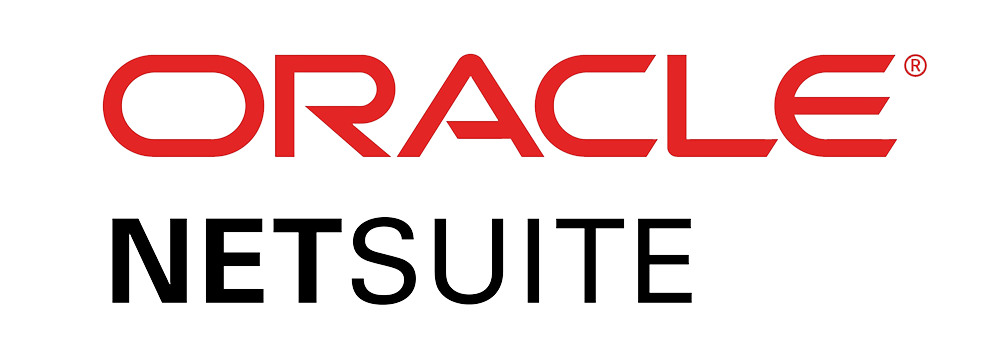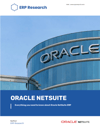

Netsuite Vs Dynamics 365
Dynamics 365 & Netsuite Comparison
Use our quick reference table to compare Dynamics 365 and Netsuite including functionality, number of customers, deployment, pricing and cost and more.
-
Microsoft Dynamics 365

Netsuite

Vendor
Microsoft Oracle Pricing
Number of Customers
43,000+ 15,000+ Founded
2016 1998 Cloud or On-Premise
Cloud Cloud Pros
- Dynamics 365 has a global network of partners who can support your business and your implementation, wherever you are in the world.
- The wider Microsoft product suite has strong integrations with Dynamics 365 which allows you to add extra capabilities, relatively easily.
- Netsuite is one of the most widely used Cloud ERP systems in the world, meaning that research and development is continuous.
- There are hundreds of Netsuite partners around the world to support you, many of which provide unique industry capabilities and templates for specific business models.
Cons
- Many customers and critics of Dynamics complain about a lack of prebuilt processes and functionality.
- Configuration and customization can be very complex.
- Netsuite is made up of several solutions which were acquired over the years and some users suggest that this leads to issues.
- Many Netsuite users complain of price hikes after the initial contract period.
Modules & Functionality
- Financial Management & Accounting
- Project Management
- Supply Chain Management
- Service
- Human Resources
- Operations
- Financial Management & Accounting
- Sales & Distribution
- Inventory Management
- Production & Manufacturing
- Supply Chain Management
- MRP
- Billing & Revenue Recognition
Target Industries
- Professional Services
- Retail
- Construction
- Distribution
- Manufacturing
- Professional Services
- Software
- High Tech
- Non-Profit Organizations
- Ecommerce
- Financial Services
- Manufacturing
Target Company Size
250 - 10,000+ Employees 50 - 5,000 Employees History
Microsoft Dynamics 365 was originally called Microsoft Dynamics NAV, released on November 1, 2001. Since 2008, it has been increasingly part of the Microsoft Dynamics family of products, which also include Microsoft Dynamics AX, Dynamics CRM, and Microsoft Dynamics GP.
In 2012, Microsoft announced a major overhaul of the product, rebranding it as Microsoft Dynamics 365.
Dynamics 365 is a modular software suite. It includes business management software for finance, operations, and field service, as well as customer relationship management (CRM) software.
Dynamics CRM is the business's primary sales tool. Microsoft Dynamics 365 also includes the business intelligence and reporting software Power BI, Yammer, the Office 365 productivity suite, Microsoft Office, and Microsoft Dynamics 365 Field Service.
The Dynamics 365 system is marketed to small and medium-sized businesses (SMBs), as well as divisions of large companies.
On November 1, 2016 Microsoft released Microsoft Dynamics 365 Business Central, a business management solution for mid-sized companies.Oracle NetSuite was first created in 1998 under the name 'Netledger' by entrepreneur Evan Goldberg, providing web accessible financial and accounting software. From the very beginning, Oracle NetSuite had huge involvement from Oracle and the money to start the company was provided by then CEO of Oracle and Founder, Larry Ellison to the tune of $125 million. Many of the early employees at NetSuite came from Oracle, including the CTO.
Very quickly, Oracle NetSuite made several acquisitions to complement it's core accounting functionality, including Bronto, Venda, OpenAir, QuickArrow, Monexa, Retail Anywhere, OrderMotion, iQuity Solutions, TribeHR & Element Fusion. With these acquisitions under it's belt, Oracle NetSuite now offers rich capabilities for marketing automation & CRM, ecommerce, human resources solutions, professional services automation and more.
In December 2007, NetSuite IPO'd and floated on the New York Stock Exchange.
Estimates suggest that as of 2021, Oracle NetSuite has over 24,000 customers around the world running their ERP software.
Full Guide
- Dynamics 365 has a global network of partners who can support your business and your implementation, wherever you are in the world.
Acumatica & Netsuite FAQ
Should I choose Netsuite or Dynamics 365?
Both Netsuite and Microsoft Dynamics 365 are great choices for your new ERP system, but one or the other could be better for your business depending on a number of factors including:
- Your industry
- The size of your business
- Your chosen ERP scope
- Your budget
- Your users and their preferences
Where is Netsuite hosted?
According to the Oracle NetSuite website, Oracle NetSuite can be hosted in any of 11 global data centers, increasing from 5 initially deployed by Oracle NetSuite themselves by leveraging additional Oracle data centres. This gives Oracle NetSuite customers the ability to leverage hosting in North America, Europe, Germany, China, Japan, Australia and Singapore.
For companies who need to follow specific rules about where their data is stored or organizations that are simply risk averse, this provides a great deal of flexibility and choice versus other Cloud ERP providers.
Can you customize Netsuite?
Yes, Oracle NetSuite offers many out of the box customization capabilities.
Can Netsuite do payroll?
Payroll is offered as part of the core Oracle NetSuite offering under the SuitePeople umbrella for HCM. Despite this, users have claimed that payroll in Oracle NetSuite is not provided by the core Oracle NetSuite functionality and is provided by an outsourced provider.
How do I compare Netsuite & Dynamics 365?
If your ERP choice is Netsuite Vs Dynamics 365 then we recommend comparing these ERP solutions to make the right choice.
When making a Dynamics 365 and Netsuite comparison, you should consider the most critical elements of your business, such as:
- Which ERP modules do I need?
- How much budget do I have available?
- What is my risk profile?
- How much time and resource do I have available?
- What is my growth trajectory?
Is Dynamics 365 available in my country?
Dynamics 365 is available in a limited number of markets, but new countries are added through Microsoft-led localisation or through partner-led localisation on a quarterly basis.
Which 3rd Party Extensions does Microsoft Dynamics support?
These third party extensions expand the functionality of the core Dynamics 365 product to perform tasks and capabilities for specific company and industry needs. Although these extensions generally work well with Dynamics 365, they are ultimately developed and supported by third parties rather than by Microsoft.
Dynamics 365 Business Central extensions enable further industry related processes for financials, sales, and customer service to work together seamlessly.
The Microsoft Dynamics 365 third party extensions include connectivity with:
- Microsoft's Power BI
- Microsoft Excel reporting services
- Financial consolidation
- Budgeting
- Shipping & logistics integrations.
- Expenses management & invoice automation.
- Payment gateways and processing.
- Additional localization packages.
- Configure, Price, Quote (CPQ) solutions.
- EDI integration.
- Barcode scanning.
- Field Service Management (FSM) extensions.

Comparing ERP? Speak to an ERP Expert for free
Our ERP experts can help you to compare popular ERP software and help you decide which one is right for your specific business needs. Book a free 15 minute consultation now.



